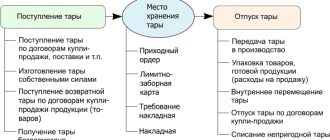Accounting
In accounting, reflect the amount of debt forgiven to the organization as part of other income on the loan in account 91 “Other income and expenses” (clause 7 of PBU 9/99). Make the wiring:
Debit 60 (66, 67, 75, 76...) Credit 91-1 - reflects the amount of debt forgiveness.
This follows from the Instructions for the chart of accounts (accounts 91, 60, 66, 67, 76).
Income in the form of a forgiven debt should be reflected as other income in the reporting period in which the notification (agreement, contract) about debt forgiveness was signed (received) (clause 16 of PBU 9/99).
In a similar manner, reflect the forgiveness of debt associated with the founders' decision to increase net assets. In this case, there is no need to make additional entries in accounting. This is explained by the fact that the increase in net assets occurs due to the financial result. In this case, no movement of property (property rights) occurs. For more information on calculating net worth, see How to Calculate Net Asset Value.
Instead of debt forgiveness, you can pay additional contributions to the community. That is, to offset monetary claims against the company (clause 4 of article 19 of the Law of February 8, 1998 No. 14-FZ).
An example of how debt forgiveness under a supply agreement is reflected in the debtor’s accounting
On January 20, Alpha LLC shipped goods to Torgovaya LLC in the amount of 118,000 rubles. (including VAT – 18,000 rubles). The term for payment for goods according to the supply agreement is 21 calendar days from the date of shipment.
Since bankruptcy proceedings were initiated against Hermes, Alpha forgave the debt to the buyer. On February 19, Hermes received a notice of debt forgiveness in the amount of 118,000 rubles.
The Hermes accountant recorded transactions related to debt forgiveness as follows.
January 20th:
Debit 41 Credit 60 – 118,000 rub. – purchased goods are capitalized;
Debit 19 Credit 60 – 18,000 rub. – reflected input VAT on purchased goods.
February 19:
Debit 60 Credit 91-1 – 118,000 rubles. – reflects the amount of debt forgiveness.
An example of how debt forgiveness under a loan agreement with an organization is reflected in the debtor’s accounting
On February 28, Alpha LLC provided Torgovaya LLC a loan in the amount of 500,000 rubles. for the period from March 1 to March 31 (inclusive). The amount of interest payable to the lender for the use of borrowed funds is 4,000 rubles.
On the date of loan repayment (March 31), a debt forgiveness agreement was signed, according to which Alpha releases Hermes from the obligation to repay the loan amount received and pay interest on the use of borrowed funds.
To reflect transactions under the loan agreement, the Hermes accountant opened subaccounts for account 66 “Settlements on short-term loans and borrowings”: – “Settlements on the principal debt”; - “Calculations based on interest.”
The Hermes accountant recorded transactions related to debt forgiveness as follows.
28th of February:
Debit 51 Credit 66 subaccount “Settlements of the principal debt” – 500,000 rubles. – the loan amount is credited to the current account.
March 31:
Debit 91-2 Credit 66 subaccount “Interest payments” - 4000 rubles. – interest accrued on the loan received;
Debit 66 subaccount “Settlements on the principal debt” Credit 91-1 – 500,000 rubles. – the debt on the principal amount of the debt is written off;
Debit 66 subaccount “Interest payments” Credit 91-1 – 4000 rubles. – the debt to pay interest on the loan is written off.
Peculiarities
Donation must be distinguished from debt forgiveness. While the donee loses material goods, and the donee receives, debt cancellation is mutually beneficial for the debtor and creditor.
In exceptional cases, credit institutions liquidate debt. The conditions of such promotions are stipulated in the loan program, which is implemented on a temporary basis and is available to certain citizens: those who find themselves in a difficult life situation (those without work, the chronically ill, etc.)
Banks and other lending organizations are forced to forgive the debt after the statute of limitations expires. The accumulated debt is written off as hopeless and is not subject to collection in court.
The debt write-off transaction is carried out in the same form as the conclusion of a loan agreement, that is, in writing.
The following indicates that the creditor plans to forgive the debt without trial:
- there is no legal proceedings on the issue of debt collection;
- the creditor does not receive property benefits from the debtor under other obligations;
- the subsidiary company is being rehabilitated;
- in other cases when forgiveness does not have the characteristics of a gratuitous transaction.
Is it possible to draw up a loan agreement between individuals without a receipt? Find the answer in the article: loan agreement between individuals. A sample loan agreement in tranches between legal entities can be found on this page.
BASIC: income tax
The amount of the forgiven debt (under the agreement for the purchase of goods, works, services, property rights - including VAT) should be included in non-operating income (clauses 8 and 18 of Article 250 of the Tax Code of the Russian Federation).
Recognize non-operating income on the date of signing (receipt) of the notice (agreement, contract) about debt forgiveness (subclause 3, clause 4, article 271, clause 2, article 273 of the Tax Code of the Russian Federation). This procedure applies regardless of what agreement the debt is written off in this way (an agreement for the purchase of goods, work, services, property rights or a loan) and what method the organization uses when calculating income tax.
Moreover, if the debt is written off under an agreement for the purchase of goods (including for subsequent sale), work, services, property rights and the organization applies the cash method at the time of signing (receiving) a notice (agreement, contract) about debt forgiveness, the purchased goods (work, services, property rights) will be considered paid. This is explained by the fact that by clause 3 of Article 273 of the Tax Code of the Russian Federation, payment is understood as another method of terminating an obligation (in this case, debt forgiveness) (clause 1 of Article 407, Article 415 of the Civil Code of the Russian Federation).
If the debt is forgiven under an interest-bearing loan agreement, then the accrued interest on it is also taken into account in income (clause 18 of Article 250 of the Tax Code of the Russian Federation). At the same time, even those forgiven interests that the organization for some reason did not previously take into account in expenses are reflected in income (letter of the Ministry of Finance of Russia dated March 31, 2011 No. 03-03-06/1/191).
When using the accrual method at the time of signing (receiving) a notice (agreement, contract) about debt forgiveness, write off interest that is subject to accrual in the current reporting period, but not taken into account at the time of debt forgiveness, as a reduction in taxable profit (subclause 2, clause 1, article 265, Clause 8 of Article 272 of the Tax Code of the Russian Federation).
Include interest in the calculation of the tax base (clause 1 of Article 269, subclause 2 of clause 1 of Article 265 of the Tax Code of the Russian Federation).
Situation: is it necessary to take into account in income when calculating income tax the amount of forgiven debt under an agreement for the purchase of goods (works, services, property rights)? The debt is forgiven by the founder who has a contribution of more than 50 percent in the authorized capital of the organization.
According to the Russian Ministry of Finance, the amount of forgiven debt should increase taxable income. However, the Federal Tax Service of Russia expressed a different position.
The tax base for income tax is not increased only by the value of property received free of charge from the founder, whose share in the authorized capital of the organization exceeds 50 percent (subclause 11, clause 1, article 251 of the Tax Code of the Russian Federation). As a result of debt forgiveness, the transfer of property does not occur (clause 2 of Article 38 of the Tax Code of the Russian Federation). For tax purposes, this operation should be considered as a write-off of accounts payable, which is included in non-operating income on the basis of paragraph 18 of Article 250 of the Tax Code of the Russian Federation. The Tax Code of the Russian Federation does not provide for any exceptions to the procedure for its taxation.
This conclusion is confirmed by the explanations of the regulatory agencies (see, for example, letters of the Ministry of Finance of Russia dated April 5, 2010 No. 03-03-06/1/232, dated March 30, 2007 No. 03-03-06/1/201, dated March 28, 2006 No. 03-03-04/1/295, dated March 17, 2006 No. 03-03-04/1/257, Federal Tax Service of Russia dated May 22, 2009 No. 3-2-13/76) .
However, in letter dated March 6, 2009 No. 3-2-06/32, the Federal Tax Service of Russia expressed a different point of view. As a result of debt forgiveness, the organization saves money, which can be equated to receiving money, that is, property (clause 3 of the information letter of the Presidium of the Supreme Arbitration Court of the Russian Federation dated December 22, 2005 No. 98). Property received free of charge from a founder whose share of participation in the organization exceeds 50 percent is not recognized as income (subclause 11, clause 1, article 251 of the Tax Code of the Russian Federation). Therefore, this transaction should not be subject to income tax.
In addition, in this letter, the Federal Tax Service of Russia indicated that on the issue of accounting for the amount of debt forgiven by the founder upon repayment of the loan amount, the Ministry of Finance of Russia adheres to a similar position. Since the termination of obligations in cases of debt forgiveness under loan agreements is similar in nature to the termination of obligations by forgiveness of debt for goods supplied (work performed, services rendered, property rights received), subparagraph 11 of paragraph 1 of Article 251 of the Tax Code of the Russian Federation should also be applied to these transactions.
In this situation, the organization must independently decide which of these positions to follow. However, due to the release of later clarifications from regulatory agencies, disputes with inspectors may arise. At the same time, in arbitration practice there are examples of court decisions made in favor of organizations (see, for example, the decision of the Supreme Arbitration Court of the Russian Federation dated July 24, 2009 No. VAS-8675/09, decisions of the Federal Antimonopoly Service of the North Caucasus District dated May 21, 2009 No. A63-9238/2008-C4-37, Central District dated November 15, 2007 No. A54-125/2007-C13, Northwestern District dated April 4, 2003 No. A56-39007/02).
Advice: there is a way not to take into account the amount of debt forgiven by the founder under an agreement for the purchase of goods (work, services, property rights) in income.
Along with the agreement on debt forgiveness, it is necessary to draw up the minutes of the general meeting of the company's participants (shareholders), according to which property, property or non-property rights are transferred to the organization to increase net assets (subclause 3.4, clause 1, article 251 of the Tax Code of the Russian Federation). In this case, the size of the founder’s share in the authorized capital of the organization does not matter. The opportunity to take advantage of such a benefit appeared on January 1, 2011 and applies to obligations arising from January 1, 2007 (clauses 1 and 2 of Article 4 of the Law of December 28, 2010 No. 409-FZ).
For more information about this, see How to register and record receipt of financial assistance from the founder (participant, shareholder).
Situation: should the amount of forgiven debt for repayment of the loan be taken into account in income when calculating income tax? The debt is forgiven by the founder who has a contribution of more than 50 percent in the authorized capital of the organization.
According to the Russian Ministry of Finance, the amount of the forgiven loan does not need to be taken into account in income. However, claims from tax inspectors cannot be ruled out.
The Russian Ministry of Finance indicates that the amount of a loan received, forgiven by the founder, whose share in the authorized capital of the organization exceeds 50 percent, does not need to be included in income (see, for example, letters dated September 30, 2013 No. 03-03-06/1/40367 , dated October 21, 2010 No. 03-03-06/1/656, dated October 14, 2010 No. 03-03-06/1/646). This is explained like this.
When the debt on the main loan obligation is forgiven, the organization actually receives property free of charge. Property received free of charge is included in non-operating income (clause 8 of Article 250 of the Tax Code of the Russian Federation). But for the case when the donor is the founder of the organization, an exception is provided. Property received free of charge is not included in income if, at the time when the notice (agreement) on debt forgiveness is signed, the founder’s share in the authorized capital of the organization exceeds 50 percent. This follows from subparagraph 11 of paragraph 1 of Article 251 of the Tax Code of the Russian Federation.
The Russian Ministry of Finance is convinced that the condition on the size of the contribution (share) in the authorized capital must be met at the time of concluding the loan agreement (letter of the Russian Ministry of Finance dated January 31, 2011 No. 03-03-06/1/45).
Forgiveness of the principal amount of the debt (excluding interest debt) under a loan agreement may fall under the provisions of subparagraph 11 of paragraph 1 of Article 251 of the Tax Code of the Russian Federation, therefore it does not increase the tax base of the organization.
The tax department also agrees with the stated point of view (see, for example, letters of the Federal Tax Service of Russia dated May 22, 2009 No. 3-2-13/76, dated March 6, 2009 No. 3-2-06/32).
However, based on the position of regulatory agencies on a similar issue of accounting for the amount of debt forgiven by the founder under an agreement for the purchase of goods (work, services, property rights), it is possible that failure to reflect income when the debt is forgiven under a loan agreement may cause claims from inspectors. The fact is that, if you follow the norms of civil law, debt forgiveness is a way to terminate the obligation under the original compensation agreement (Articles 407 and 415 of the Civil Code of the Russian Federation). Therefore, the amount of forgiven debt, including under a loan agreement, cannot be considered property received free of charge (Article 572 of the Civil Code of the Russian Federation). For tax purposes, this operation should be considered as a write-off of accounts payable, which is included in non-operating income on the basis of paragraph 18 of Article 250 of the Tax Code of the Russian Federation. There are no exceptions regarding the non-reflection of income received from the founder in relation to this paragraph. Therefore, when forgiveness of debt under a loan agreement (as under any other agreement), it is necessary to generate income.
In this situation, the organization has the right to independently decide which of these positions to follow. All ambiguities in the legislation are interpreted in favor of taxpayers (Clause 7, Article 3 of the Tax Code of the Russian Federation).
Advice: there is a way not to take into account the amount of debt forgiven by the founder under the loan agreement.
Along with the agreement on debt forgiveness, it is necessary to draw up the minutes of the general meeting of the company's participants (shareholders), according to which property, property or non-property rights are transferred to the organization to increase net assets (subclause 3.4, clause 1, article 251 of the Tax Code of the Russian Federation). In this case, the size of the founder’s share in the authorized capital of the organization does not matter. The opportunity to take advantage of such a benefit appeared on January 1, 2011 and applies to obligations arising from January 1, 2007 (clauses 1 and 2 of Article 4 of the Law of December 28, 2010 No. 409-FZ).
For more information about this, see How to register and record receipt of financial assistance from the founder (participant, shareholder).
Situation: is it necessary to take into account the amount of forgiven debt for payment of interest on the loan in income when calculating income tax? The debt is forgiven by the founder who has a contribution of more than 50 percent in the authorized capital of the organization.
The amount of interest when debt is forgiven must be taken into account as part of non-operating income (Clause 18, Article 250 of the Tax Code of the Russian Federation).
It is explained this way. At its core, interest is a fee that the borrower must pay for the use of borrowed funds in accordance with the loan agreement (Article 809 of the Civil Code of the Russian Federation). Therefore, when a debt is forgiven, the organization’s accounts payable are written off (Article 415 of the Civil Code of the Russian Federation). The legislation does not provide for any exceptions to the taxation procedure.
This position is reflected in letters of the Ministry of Finance of Russia dated September 30, 2013 No. 03-03-06/1/40367, dated October 14, 2010 No. 03-03-06/1/646, dated April 17, 2009 No. 03- 03-06/1/259.
The tax department confirms the stated point of view (see, for example, letters of the Federal Tax Service of Russia dated May 22, 2009 No. 3-2-13/76, Federal Tax Service of Russia for Moscow dated December 29, 2008 No. 19-12/121854).
However, in letter dated March 6, 2009 No. 3 –2-06/32, the Federal Tax Service of Russia expressed a different point of view.
As a result of debt forgiveness, the organization saves money, which can be equated to receiving money, that is, property (clause 3 of the information letter of the Presidium of the Supreme Arbitration Court of the Russian Federation dated December 22, 2005 No. 98). Property received free of charge from a founder whose share of participation in the organization exceeds 50 percent is not recognized as income (subclause 11, clause 1, article 251 of the Tax Code of the Russian Federation). Therefore, this transaction should not be subject to income tax.
In addition, in this letter, the Federal Tax Service of Russia indicated that on the issue of accounting for the amount of debt forgiven by the founder upon repayment of the loan amount, the Ministry of Finance of Russia adheres to a similar position. Since forgiveness of the principal debt under loan agreements is similar in nature to the termination of interest obligations on loans, subparagraph 11 of paragraph 1 of Article 251 of the Tax Code of the Russian Federation should also be applied to these transactions.
An example of how the amount of interest on a loan provided by the founder is reflected in accounting and taxation. The loan debt is written off by debt forgiveness. The organization applies a general taxation system
One of the founders of Alpha LLC is Proizvodstvennaya LLC. The Master's share in the authorized capital of the organization is 51 percent.
On January 17, “Master” provided “Alfa” with a loan in the amount of 200,000 rubles. at 15 percent per annum for a period of two months (not a leap year). According to the terms of the agreement, interest is paid no later than the 20th day of the following month. The organization did not receive any other loans.
On February 16, the management of Master decided to forgive the debt on the loan provided. When reflecting the debt forgiveness operation, the accountant was guided by the position of the Russian Ministry of Finance.
The following entries were made in accounting.
January 17:
Debit 51 Credit 66 – 200,000 rub. – a loan was received from the founder of the organization.
January 31:
Debit 91-2 Credit 66 – 1151 rub. (RUB 200,000 × 15%: 365 days × 14 days) – interest accrued for January.
Alpha pays income tax monthly and uses the accrual method. When calculating income tax for January, the accountant took into account interest on the loan in the amount of 1,151 rubles as part of non-operating expenses.
February 16:
Debit 91-2 Credit 66 – 1315 rub. (RUB 200,000 × 15%: 365 days × 16 days) – interest accrued for February;
Debit 66 Credit 91-1 – 200,000 rubles. – the amount of forgiven debt on a loan received is included in the organization’s other income;
Debit 66 Credit 91-1 – 2466 rub. (RUB 1,151 + RUB 1,315) – interest on the forgiven debt is included in other income.
When calculating income tax in February, the accountant took into account interest on forgiven debt as income - 2,466 rubles. (1151 rub. + 1315 rub.).
As part of non-operating expenses, the accountant took into account interest on the loan in the amount of 1,315 rubles.
Advice: there is a way not to take into account the amount of debt forgiven by the founder in the form of interest under the loan agreement.
Along with the agreement on debt forgiveness, it is necessary to draw up the minutes of the general meeting of the company's participants (shareholders), according to which property, property or non-property rights are transferred to the organization to increase net assets (subclause 3.4, clause 1, article 251 of the Tax Code of the Russian Federation). In this case, the size of the founder’s share in the authorized capital of the organization does not matter. The opportunity to take advantage of such a benefit appeared on January 1, 2011 and applies to obligations arising from January 1, 2007 (clauses 1 and 2 of Article 4 of the Law of December 28, 2010 No. 409-FZ).
For more information about this, see How to register and record receipt of financial assistance from the founder (participant, shareholder).
Situation: is it necessary to restore VAT on the amount of forgiven debt under an agreement for the purchase of goods (works, services, property rights)? Goods (works, services, property rights) were purchased for use in transactions subject to VAT.
No no need.
Forgiveness of the debt by the seller (performer) leads to a reduction in the buyer's (customer's) obligations to pay for the goods supplied to him (work, services, property rights (Articles 407, 415 of the Civil Code of the Russian Federation). However, the price of the contract and the amount of previously submitted VAT upon forgiveness of the debt remain unchanged. The buyer has the right to deduct the amount of VAT presented by the seller (executor) simultaneously with the receipt of goods (work, services, property rights) (clause 2 of Article 171, clause 1 of Article 172 of the Tax Code of the Russian Federation). ) the right to deduct input VAT does not depend. Therefore, if the goods supplied (work, services, property rights) were accepted for accounting, and the amount of VAT was allocated in a correctly executed invoice, then the application of a tax deduction by the buyer (customer) is considered justified.
The list of conditions under which the buyer (customer) must restore VAT accepted for deduction is given in paragraph 3 of Article 170 of the Tax Code of the Russian Federation. Debt forgiveness, that is, the refusal of the seller (performer) to receive payment for goods supplied (work, services, property rights), is not indicated in this list. Therefore, there are no grounds for reinstating input VAT in the situation under consideration.
The ruling of the Constitutional Court of the Russian Federation dated November 4, 2004 No. 324-O, according to which, when a debt is forgiven, the buyer (customer) must restore input VAT, has now lost its relevance. The basis for this conclusion was the fact that when the debt is forgiven, the buyer (customer) does not bear the actual costs of paying VAT. Since 2006, payment of VAT to the seller (performer) has been excluded from the list of conditions required for the application of a tax deduction (clause 21, article 1, clause 1, article 5 of the Law of July 22, 2005 No. 119-FZ). Therefore, in relation to transactions carried out in later periods, the explanations of the Constitutional Court of the Russian Federation do not apply.
Nuances
Debt forgiveness can also be done orally. However, this does not guarantee debt forgiveness, since it is quite difficult to prove the absence of material obligations in practice. In addition, civil legislation provides for the mandatory conclusion of a written agreement on transactions if at least one of its participants is a legal entity.
It is possible that the enterprise’s employee also acts as a creditor under loan agreements, while the organization acts as a borrower. In this case, the citizen finances the company’s activities.
Find out how to take out a loan for maternity capital in the article: loan for maternity capital. Reviews of Alfa Loan Group can be found here.
Read about a loan from GlavFinance here.
simplified tax system
The amount of the forgiven debt both under the agreement for the purchase of goods (works, services, property rights) and under the loan agreement should be included in non-operating income (clauses 8 and 18 of Article 250, clause 1 of Article 346.15 of the Tax Code of the Russian Federation). Do this on the date of signing (receipt) of the notification (agreement, contract) about debt forgiveness, regardless of the applied taxable object (clause 1 of Article 346.17 of the Tax Code of the Russian Federation).
On whether the debtor can take into account in income when calculating the single tax the amount of debt forgiven by the founder, who has a contribution to the authorized capital of the debtor of more than 50 percent, similar situations for income tax (subclause 1, clause 1.1, article 346.15 of the Tax Code of the Russian Federation).
If an organization calculates a single tax on the difference between income and expenses, the cost of purchased goods (work, services) is written off only after payment. Such payment is also considered to be the termination of obligations at the moment when a notice (agreement, contract) about debt forgiveness is signed (Clause 1, Article 407, Article 415 of the Civil Code of the Russian Federation). Therefore, if an organization has forgiven a debt for fixed assets, intangible assets or goods purchased for resale, such assets are considered paid and written off in the general manner (subclauses 2 and 4 of clause 2 of Article 346.17 of the Tax Code of the Russian Federation). Similarly, the cost of work and services that are not of a production nature is written off (clause 2 of Article 346.17 of the Tax Code of the Russian Federation).
In order to write off as material expenses the cost of raw materials, components, work, production services and everything that is named in Article 254 of the Tax Code of the Russian Federation, the payment requirement must be fulfilled in specific ways. It is necessary to transfer money from the current account, deposit it in the cash register, or pay off the debt in another way (subclause 1, clause 2, article 346.17 of the Tax Code of the Russian Federation). When a debt is forgiven, there is no repayment of the debt, so material expenses cannot be written off. A similar point of view is expressed in the letter of the Ministry of Finance of Russia dated April 15, 2011 No. 03-11-06/2/57.
If organizations forgive a debt under an interest-bearing loan agreement, the interest cannot be written off as expenses.
When the object of taxation is income, the organization does not take into account any expenses (clause 1 of Article 346.18 of the Tax Code of the Russian Federation).
If an organization pays a single tax on the difference between income and expenses, interest is considered paid at the time the debt is repaid. And when a notice (agreement, contract) about debt forgiveness is signed, this condition is not met. This procedure follows from subparagraph 9 of paragraph 1 of Article 346.16 and subparagraph 1 of paragraph 2 of Article 346.17 of the Tax Code of the Russian Federation.
Situation: is it necessary to take into account when calculating the single tax income in the form of the loan amount received from the founder? The founder forgives the organization's debt. The organization applies simplification.
The answer to this question depends on what part of the authorized capital of the organization is the contribution of this founder.
If the share contributed by the founder is 50 percent or less, take the amount of the written off loan debt into account as income. Do the same if the property transferred to the organization as a result of debt forgiveness was transferred to third parties during the year. This follows from paragraph 1 of Article 346.15 and paragraph 8 of Article 250 of the Tax Code of the Russian Federation. Recognize income on the date of signing the agreement on debt forgiveness (clause 1 of Article 346.15, clause 2 of Article 273 of the Tax Code of the Russian Federation).
An example of settlements with the founder of an organization for a loan provided. The founder's share in the authorized capital of the organization is 45 percent. The organization applies simplification
One of the founders of Alpha LLC is A.V. Lviv. The share contributed by Lvov to the authorized capital of the organization is 45 percent.
In January, Lvov provided Alpha with an interest-free loan in the amount of 100,000 rubles. for a period of three months. In March, due to the difficult financial situation of the organization, Lvov forgives Alpha the debt on the loan provided.
The organization's accountant took into account the loan amount when calculating the single tax during the period of signing the debt forgiveness agreement (in the first quarter).
If the founder's share is more than 50 percent, the question of including the amount of written-off debt in income is ambiguous. Since the controversial situation is based on the provisions of subclause 11 of clause 1 of Article 251 of the Tax Code of the Russian Federation, the conclusions it contains can be guided not only by income tax payers, but also by organizations applying the simplification (subclause 1 of clause 1.1 of Article 346.15 of the Tax Code of the Russian Federation ).
For information on accounting for interest on a debt forgiven by the founder, see How to take into account interest on a received loan (credit) for tax purposes.
An example of settlements with the founder of an organization for a loan provided. The founder's share in the authorized capital of the organization is more than 50 percent. The organization applies simplification
One of the founders of Alpha LLC is A.V. Lviv. The share contributed by Lvov to the authorized capital of the organization is 51 percent.
In January, Lvov provided Alpha with an interest-free loan in the amount of 100,000 rubles. for a period of three months. In March, due to the difficult financial situation of the organization, Lvov forgives Alpha the debt on the loan provided.
When calculating the single tax, the Alpha accountant was guided by the position of the Russian Ministry of Finance. Therefore, he did not include the amount of the forgiven debt as income.
When possible
Dear readers! The article talks about typical ways to resolve legal issues, but each case is individual. If you want to find out how to solve your particular problem , contact a consultant:
8 (800) 700 95 53
APPLICATIONS AND CALLS ARE ACCEPTED 24/7 and 7 days a week.
It's fast and FREE !
The most common situation is when an employee borrows money or goods from the company. The procedure for debt cancellation will be regulated in this case by the company’s internal rules.
For example, such a promotion may be announced in connection with certain events: payment of half of the debt by a citizen, a significant date in the activities of the enterprise - the anniversary of the formation of a holding company, etc. An employee also has the opportunity to forgive a debt if he has a difficult life situation or has been experiencing financial problems for a long time difficulties.
Credit institutions of any form do not write off debts to borrowers: banks, microfinance organizations, pawnshops, etc.
Debt forgiveness can also be applied to a citizen who is the founder of a company.
It is also possible to cancel debts owed by an enterprise in relation to an employee under contracts for the purchase of goods, works or services, assessed as the amount of the contract.
Debt forgiveness is also possible if the organization is declared insolvent – bankrupt. The procedure for canceling debt in this case is regulated by Law No. 127-FZ.
Elimination of debt is also possible by concluding a settlement agreement during the judicial review of the dispute. Again, the rules on forgiveness apply only in cases where such an action does not violate the rights of other creditors.
UTII
The object of UTII taxation is imputed income (clause 1 of Article 346.29 of the Tax Code of the Russian Federation). Therefore, the amount of forgiven debt will not affect the tax base for UTII.
Payment of a single tax provides for exemption, in particular, from the obligation to pay income tax (clause 4 of Article 346.26 of the Tax Code of the Russian Federation). If the debtor carries out only one type of business activity that is subject to UTII taxation, the amount of the forgiven debt is considered received within the framework of this taxation regime. Consequently, such income is exempt from income tax (clause 4 of Article 346.26 of the Tax Code of the Russian Federation). A similar conclusion was made in letters of the Ministry of Finance of Russia dated September 22, 2006 No. 03-11-04/3/419, dated July 7, 2006 No. 03-11-04/3/338. They express an opinion regarding the accounting of other non-operating income of the organization on UTII (for example, the amount of overdue accounts payable).
OSNO and UTII
If the debtor applies the general taxation system and pays UTII, he is obliged to keep separate records of income, expenses and business transactions (clause 7 of Article 346.26 of the Tax Code of the Russian Federation). When calculating income tax, include in non-operating income only the amount of forgiven debt that arose as part of activities under the general taxation system.
If the debt is forgiven for goods (works, services, property rights) that were used in both types of activities, then when writing it off, include the entire amount of non-operating income in the calculation of the tax base for income tax. This was stated in the letter of the Ministry of Finance of Russia dated March 15, 2005 No. 03-03-01-04/1/116. This position is based on the fact that the current tax legislation does not contain a mechanism for distributing non-operating income between different types of activities.







